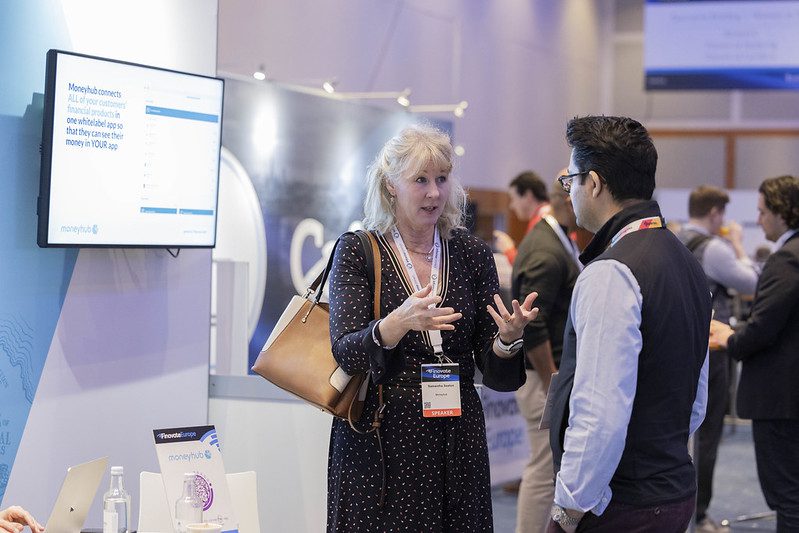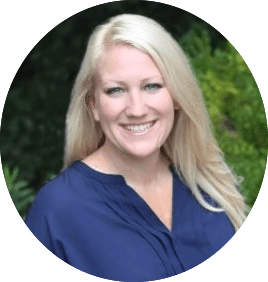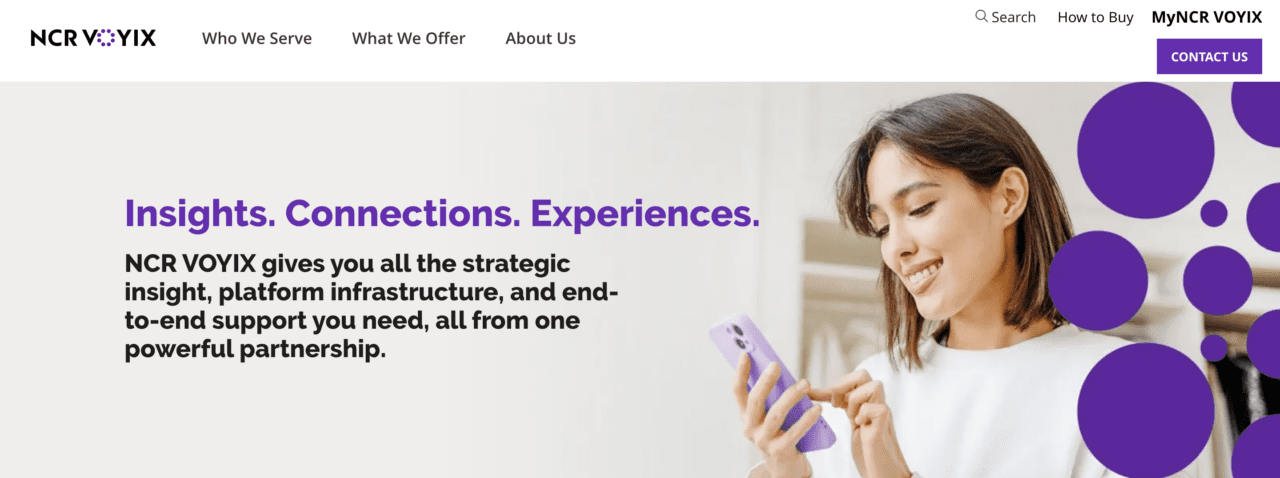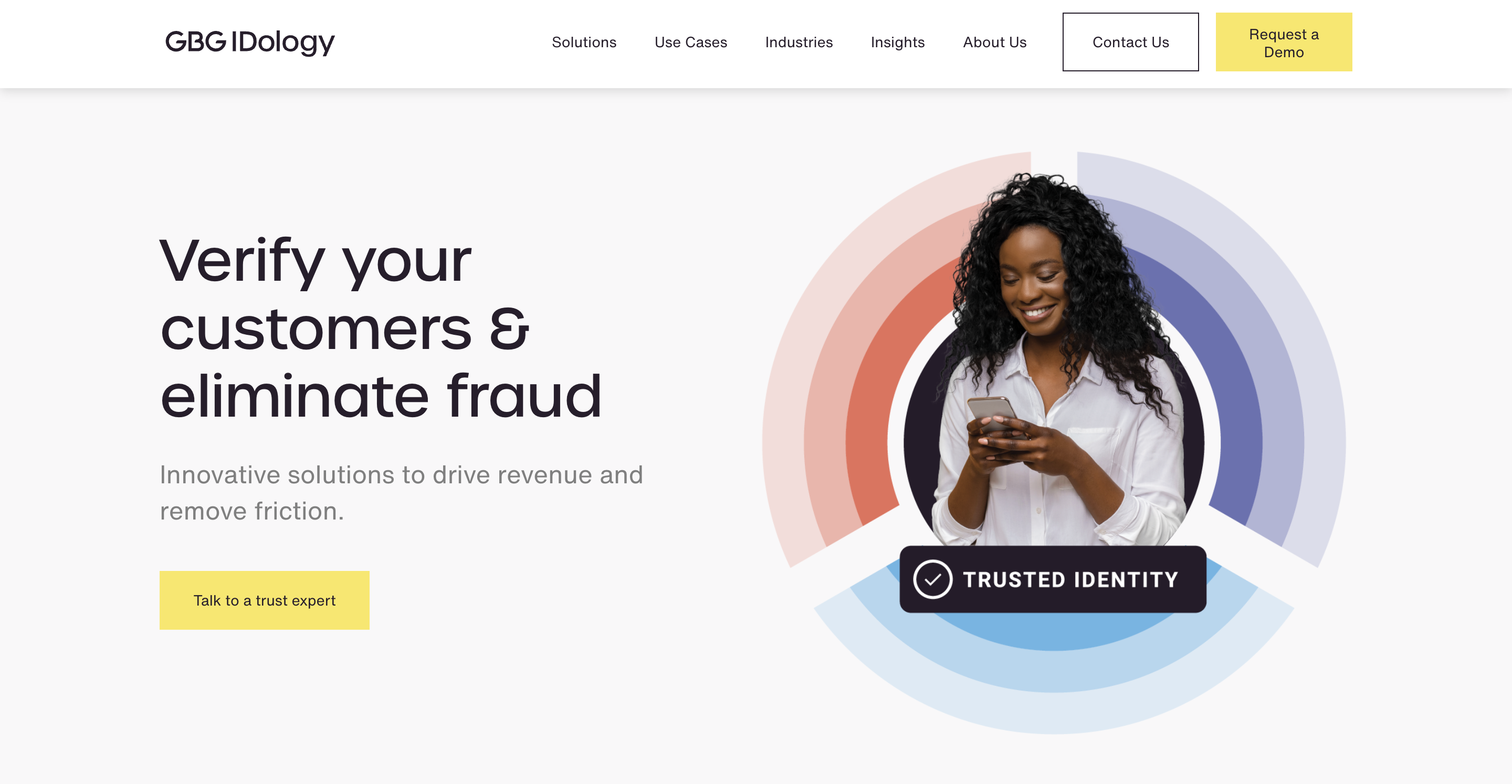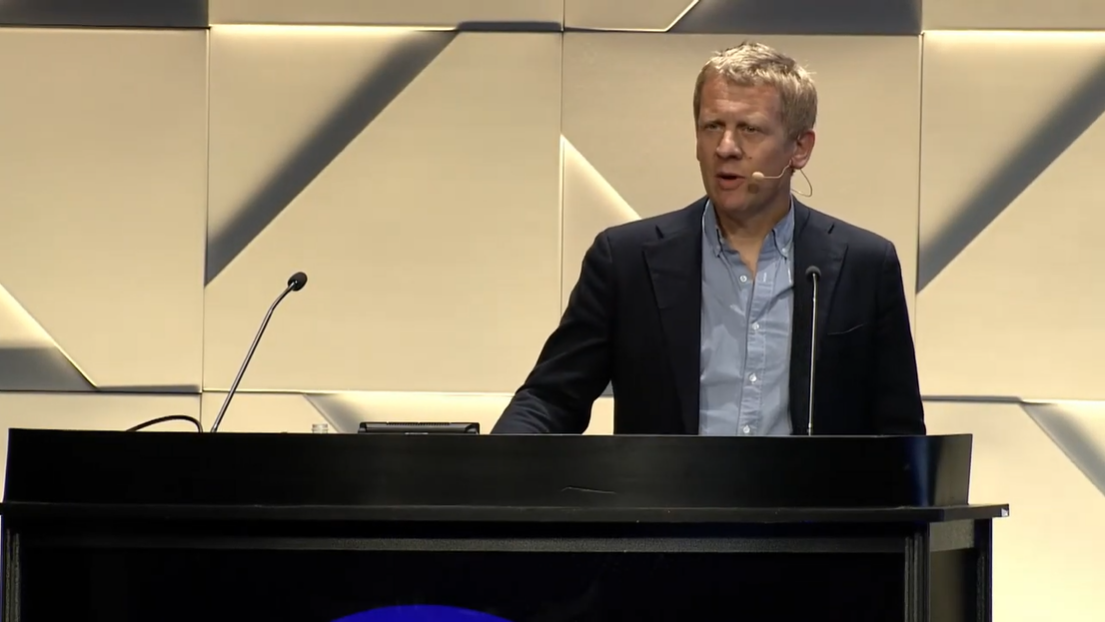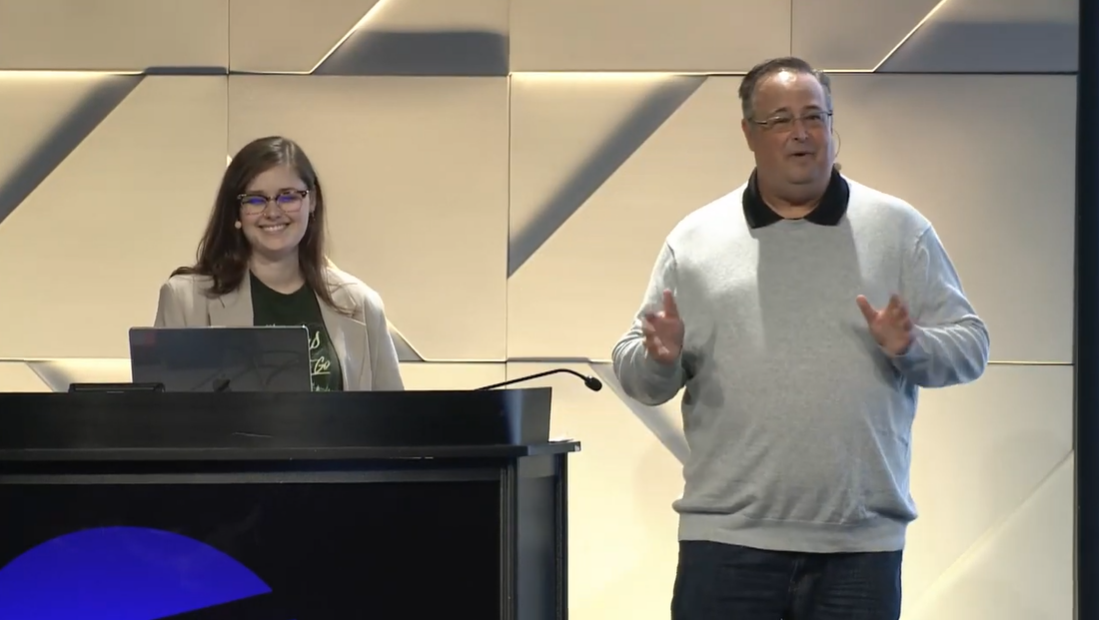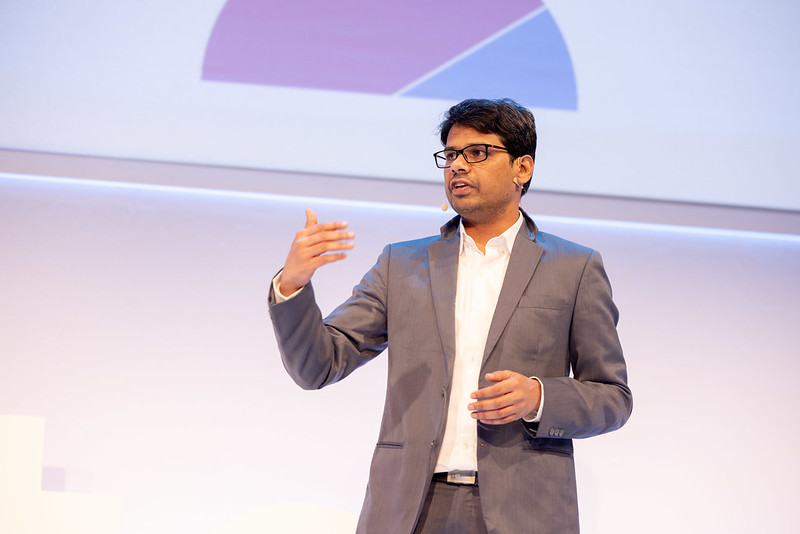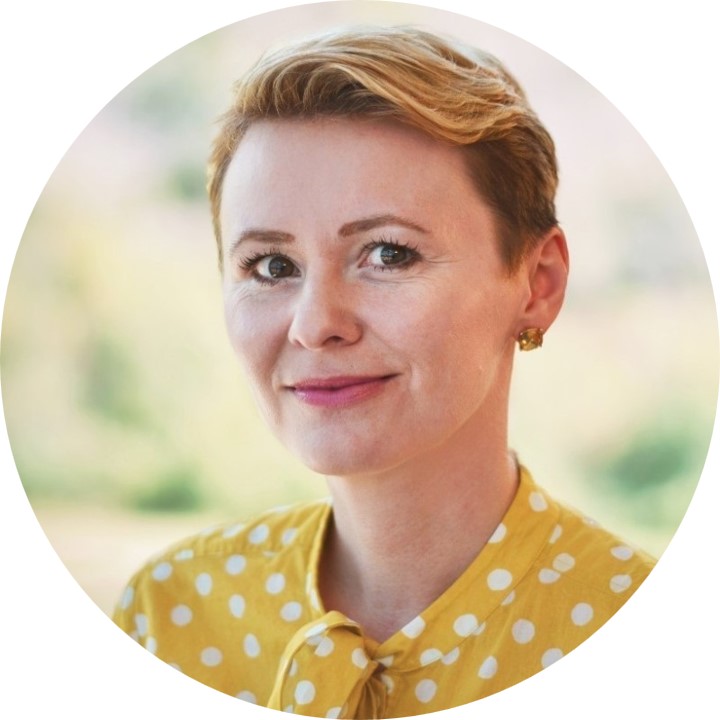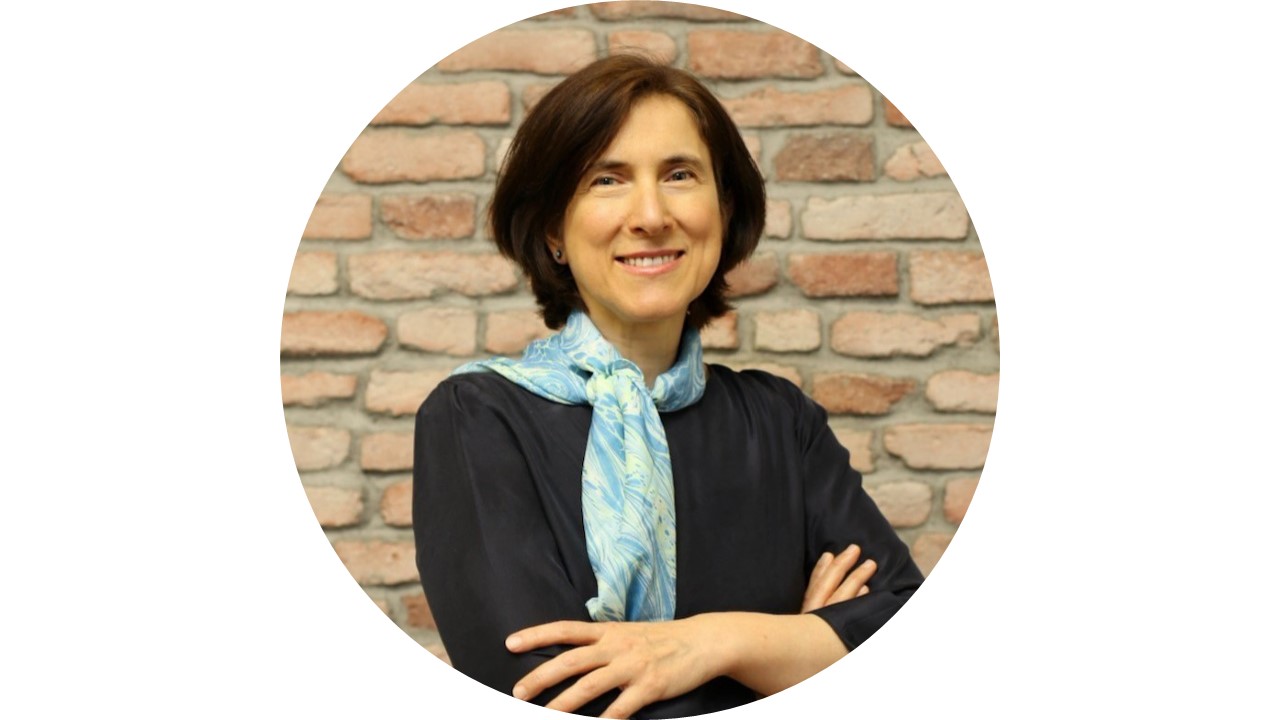
The business of helping small businesses secure the capital they need in order to grow is one of the areas in finance where fintech innovation has been most constructive.

In this Women in Fintech interview, conducted in partnership with William Mills Agency, we hear from Adlon Adams, Chief Operating Officer and Chief Revenue Officer at business lending innovator Casca. Adams talks about the importance of making financing easier to access for small businesses, and why developing real relationships with customers is key to understanding how to best help them solve their problems and overcome pain points.
Adams also talks about being a woman in leadership in a male-dominated industry and shares her advice for women who are building their careers in similar spaces.
Founded in 2023 and headquartered in San Francisco, California, Casca won Best of Show in its Finovate debut at FinovateSpring 2024 in San Francisco, and returned to the Finovate stage the following year for FinovateSpring 2025 in San Diego. The company’s loan origination platform is used by leading SBA lenders and FDIC-insured banks across the US, including institutions like Live Oak Bank and Huntington Bank.
In August, Casca secured $29 million in Series A funding in a round led by Canapi Ventures. The investment raised the company’s total capital to $33 million.
Tell us about your role at Casca. What drew you to the fintech space, and what excites you about this industry?
Adlon Adams: I serve as both COO and CRO at Casca, which means I support operations, sales, and strategy. It’s the vision of the founders and potential of this company that drew me into fintech.
The U.S. has seen a 45% jump in small business formation over the last decade, but capital access hasn’t kept pace. Casca’s mission is to help fix a broken system—to make business lending faster, fairer, and more accessible. Thanks to the work we’ve done with some of the nation’s leading SBA lenders, small businesses can access capital in a matter of days instead of months. This means businesses can go to their local bank and get what they need from a trusted source and avoid predatory rates and daily payments. I’m motivated by work that makes a tangible difference.
On a personal note, I’m also proud to work alongside a team of fellow alumni and Stanford graduates. Our AI engineers and banking technology experts have built the first AI-native loan origination system that automates more than 100 manual steps out of old, dated processes. We get to reimagine financial services in ways that change lives and build dreams.
What has it been like joining a startup in a new industry as one of the first executive hires, especially as a female now holding two leadership roles? What advice would you give to others stepping into executive roles at early-stage startups or in unfamiliar industries?
Adams: As one of Casca’s founding executive members, I’ve worn many hats, and have been stretched in ways I never expected. I’ve felt the weight of being one of the few female voices in leadership conversations. That can be daunting, but it’s also an opportunity to set an example for others and contribute fresh perspectives.
I constantly prioritize and reprioritize business needs, and must be comfortable making decisions with incomplete information. My advice: focus on what truly moves the needle each day, lean into curiosity, and trust that you deserve to be in the room—even if you’re new to an industry. Ask the right questions, surround yourself with people who help you learn, and stay focused on making an impact.
It’s both a challenging and incredibly rewarding experience. Pushing myself outside of my comfort zone is exhilarating; it ensures growth both for me personally and the company.
I understand you’ve spent a lot of time working on-site with banks, seeing their processes and challenges up close. As someone new to fintech, has that hands-on experience helped you learn the space more quickly? Would you recommend that approach to others entering the space?
Adams: That’s a resounding “yes!” I recommend anyone entering fintech get as close as possible to their end users on all levels, including those in the weeds of the day-to-day processes. Immerse yourself in their world, listen, and ask questions. Understanding their processes will enhance your technical knowledge and instill empathy for the people who use your product. The best solutions are built with close partnerships and collaborations like this.
For me, that means working alongside bankers, underwriters, credit analysts, and small business owners. It is invaluable to sit alongside loan officers, watching their workflows, and hearing their frustrations. Working hand-in-hand with banks like Live Oak Bank, the nation’s #1 SBA lender, gave me a front-row seat to how SBA lending works in practice. The experience also shaped Casca’s approach. By sharing in the frustrations of bankers, we designed a system that directly addresses their challenges. When you see how legacy systems force long timelines and delays to capital access, you understand the urgency of enabling same-week approvals and faster closings.
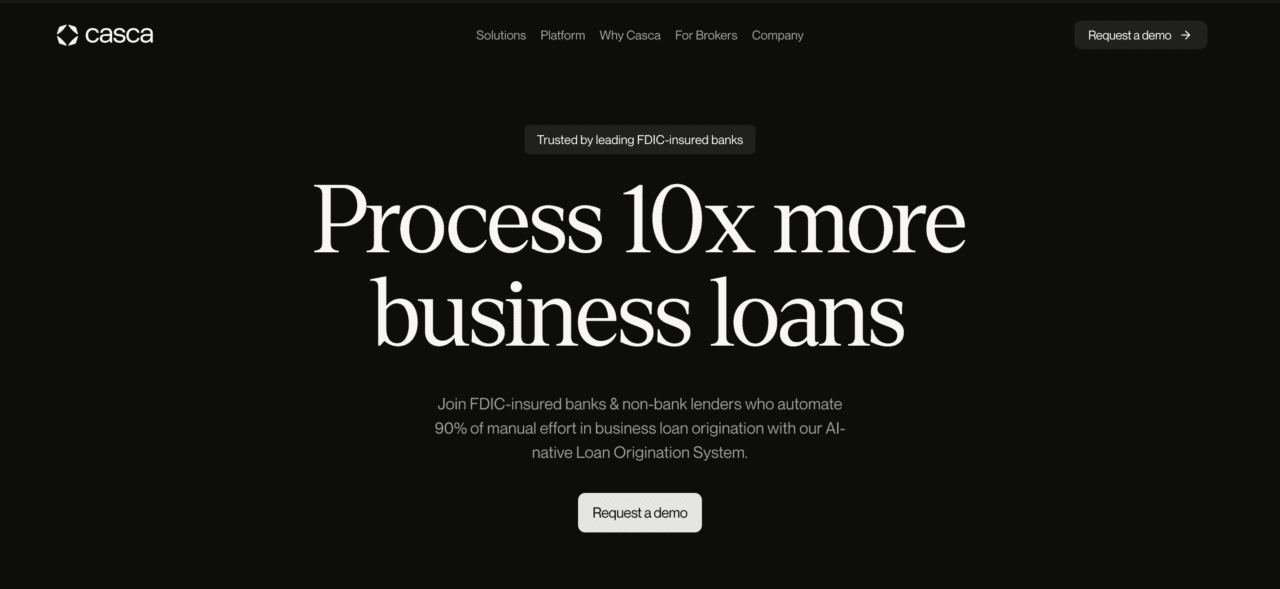
Why did Casca choose to focus on SBA lending? What gaps are you aiming to fill, and where do you see the greatest opportunities and challenges for financial institutions in this space?
Adams: SBA lending is a lifeline for small businesses, but it’s also one of the most complex and underserved segments of financial services. Traditional loan origination systems weren’t designed for SBA programs, leaving banks with slow, manual processes that limit their ability to serve this market. Alternative lenders saw this and built faster options, but often at the cost of predatory interest rates, burdening entrepreneurs with unsustainable debt. It is time to disrupt this market. Our AI-driven platform automates the hundreds of manual steps in SBA workflows and enables banks to serve entrepreneurs with fair, community-based rates at fintech-level speed.
The opportunity for financial institutions is enormous—commercial lending demand has grown 65% in the past decade. By streamlining SBA lending for traditional institutions, entrepreneurs can rely on their trusted financial partners for long-term success. Strengthening these local businesses helps the banks and their local communities in the process.
In your conversations with small business owners and entrepreneurs, what pain points or unmet needs are coming up most often?
Adams: The themes I hear most often are speed and simplicity. Business owners frequently feel forced into high-interest loans because they can’t wait months for a traditional bank process to finish. Start-ups often win new business because of their agility and grit, and they need access to capital to execute at the speed with which they do business. Others describe the SBA application process as overwhelming, with documentation and compliance requirements that take focus away from running their business. They simply don’t have the capacity to tackle such a challenging process.
Thankfully, we can alleviate these pain points, providing small business owners a sustainable path to growth. The impact is evident—banks using Casca are closing loans in days, which simply wasn’t possible with legacy systems.
How do you see small business lending evolving over the next few years, especially as AI continues to advance and gain traction?
Adams: We’re at a pivotal moment. AI is shifting small business lending from being manual and reactive to intelligent and proactive. In the coming years, I expect banks to use AI not just for faster loan processing, but also to better assess risk, personalize offerings, and expand access to credit for underserved groups.
Casca is already showing what’s possible: analyzing thousands of pages of financials in minutes and enabling banks to launch new products in weeks instead of years. With a pace of change this fast, we’ll soon begin to see a growing divide between institutions that embrace modern, AI-driven infrastructure and those still tied to legacy systems.
The winners will be the ones who use AI thoughtfully—enhancing transparency and fairness rather than replacing human judgment. My hope is that this evolution will give small business owners the fast, reliable access to capital they need to focus on building their businesses, rather than financing them. This has the potential to bring a new wave of innovation to the world.
Looking ahead, what’s next for Casca? Are there plans to expand beyond SBA lending? How do verticals like nonprofits and other underserved markets factor into the broader vision?
Adams: Looking ahead, Casca is focused on significant expansion across multiple dimensions. On the product side, the company plans to extend well beyond small business and commercial lending into additional loan categories and products. This expansion will be supported by continued platform enhancements, particularly around automation capabilities with deeper integrations into banking core systems. To support this growth, Casca is scaling its engineering, product, and customer success teams to accelerate product development and improve onboarding capabilities for financial institutions.
Any final advice for women entering fintech or stepping into leadership roles in male-dominated industries?
Adams: Trust your expertise and speak up confidently. You earned your seat at the table—own it. Don’t diminish your contributions or wait for permission to share your insights. Your perspective is valuable precisely because it may differ from the majority voice in the room.
Build genuine relationships, not just networks. Focus on creating authentic connections. The best advocates for change are often those who actively use their influence to amplify others.
Don’t do it alone. Seek out other women in fintech and adjacent industries. These relationships provide not just support, but strategic insight into navigating challenges that may be unique to your experience.
Lead with your values, but be strategic. You can push for change while being pragmatic about how you do it. Pick your battles, but don’t compromise on what matters most to you and your team.
Celebrate your wins—and help others celebrate theirs. In male-dominated spaces, women’s achievements are often overlooked. Make it a point to recognize your own successes and spotlight other women rising in the industry.
Finally, bring others up with you. As you advance, actively mentor, sponsor, and advocate for the next generation of women in fintech. Real change happens when we create pathways for those who follow.






